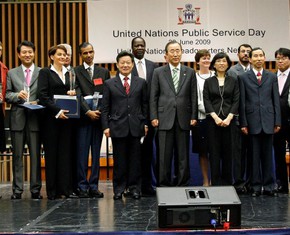The views expressed in our content reflect individual perspectives and do not represent the authoritative views of the Baha'i Faith.
Friendship is a choice. The Romance languages base their terms for “friend,” such as amigo and ami, on the Latin verb amare meaning “to love.”
But quite a different light is shed on friends and friendship when we search the Old English “frēond.” It has origins in such German words as frein (freedom), frei (to be free), and befreien (to set free).
The definitive characteristic of friendship, then, is freedom to choose. No one can demand friendship from another, expect it, or require it. No one can force their friendship upon anyone else. It can only be offered to another; or invited from another. Reciprocity is not guaranteed, as the lives of great exemplars of love attest. No one can ever say “We must be friends!” A bridge of friendship only gets built when both sides build toward the middle.
In the Baha’i teachings, real, true and genuine friendship is associated with concepts such as peace, harmony, affection, kindness, love, tenderness, sincerity, unity, loyalty, and good cheer.
Friendship: Expressed in Actions
Baha’is understand that real friendship has no reality until it is expressed and embodied in actions:
The essence of faith is fewness of words and abundance of deeds; he whose words exceed his deeds, know verily his death is better than his life. – Baha’u’llah, Tablets of Baha’u’llah, p. 156.
Person-to-person, and person-to humanity (individually and collectively) the Baha’i teachings urge us to express friendship in tender-hearted, but pragmatic and practical actions:
Do not be content with showing friendship in words alone, let your heart burn with loving kindness for all who may cross your path. – Abdu’l-Baha, Paris Talks, p. 2.
Friendship Requires Noble Qualities
Never before has integrity been spelled out so clearly as those noble qualities of character that will equip us to serve others in a spirit of true friendship. Obviously this standard is not directed exclusively to people who call themselves Baha’is, but rather to everyone who would become a servant to their society.
Should any one of you enter a city, he should become a centre of attraction by reason of his sincerity, his faithfulness and love, his honesty and fidelity, his truthfulness and loving-kindness towards all the peoples of the world, so that the people of that city may cry out and say: ‘This man is unquestionably a Baha’i, for his manners, his behaviour, his conduct, his morals, his nature, and disposition reflect the attributes of the Baha’is.’ – Abdu’l-Baha, Selections from the Writings of Abdu’l-Baha, p. 71.
The Limits of Friendship
In the early years of our soul’s journey, we search everywhere and among all sorts of people for the meaning of life, for a clue to the truth, for a trace of the traceless, faceless divine Friend. But a willingness to be friendly to others does not guarantee that others will respond to us in kind. Not every heart contains a conscious wisdom equal to or greater than our own. But the Baha’i teachings direct us not to degrade ourselves by returning hurt for hurt. Rather, they inspire us to carry on, faithful to our own code of conduct, governed only by good will:
When ye meet with cruelty and persecution at another’s hands, keep faith with him; when malevolence is directed your way, respond with a friendly heart. – Ibid., p. 21.
However, we are not required to keep subjecting ourselves to the presence of those who knowingly or unknowingly do us harm. As Baha’u’llah wrote:
The company of the ungodly increaseth sorrow … – The Hidden Words, p. 42.
[The] seeker … should treasure the companionship of them that have renounced the world, and regard avoidance of boastful and worldly people a precious benefit. – Baha’u’llah, Gleanings from the Writings of Baha’u’llah, p. 265.
Before the word “enabling” came into our vocabulary, the Baha’i teachings pointed out that no amount of kindness is allowed to override the dark or deluded will of another. Each soul is granted its own free will. So Baha’is never try to bribe or cajole or indulge another person into the right choices. Fires of addiction, violence, incest, gambling, or rage are not quenched by trying to drown them in kindness, forbearance, indulgence or other forms of enabling. Rather, such indulgence serves only as fuel to feed the fires of self-destruction even further, and to multiply the number of victims consumed therein:
Strive ye then with all your heart to treat compassionately all humankind – except for those who have some selfish, private motive, or some disease of the soul. Kindness cannot be shown the tyrant, the deceiver, or the thief, because, far from awakening them to the error of their ways, it maketh them to continue in their perversity as before. – Abdu’l-Baha, Selections from the Writings of Abdu’l-Baha, p. 158.
















Comments
Sign in or create an account
Continue with Googleor